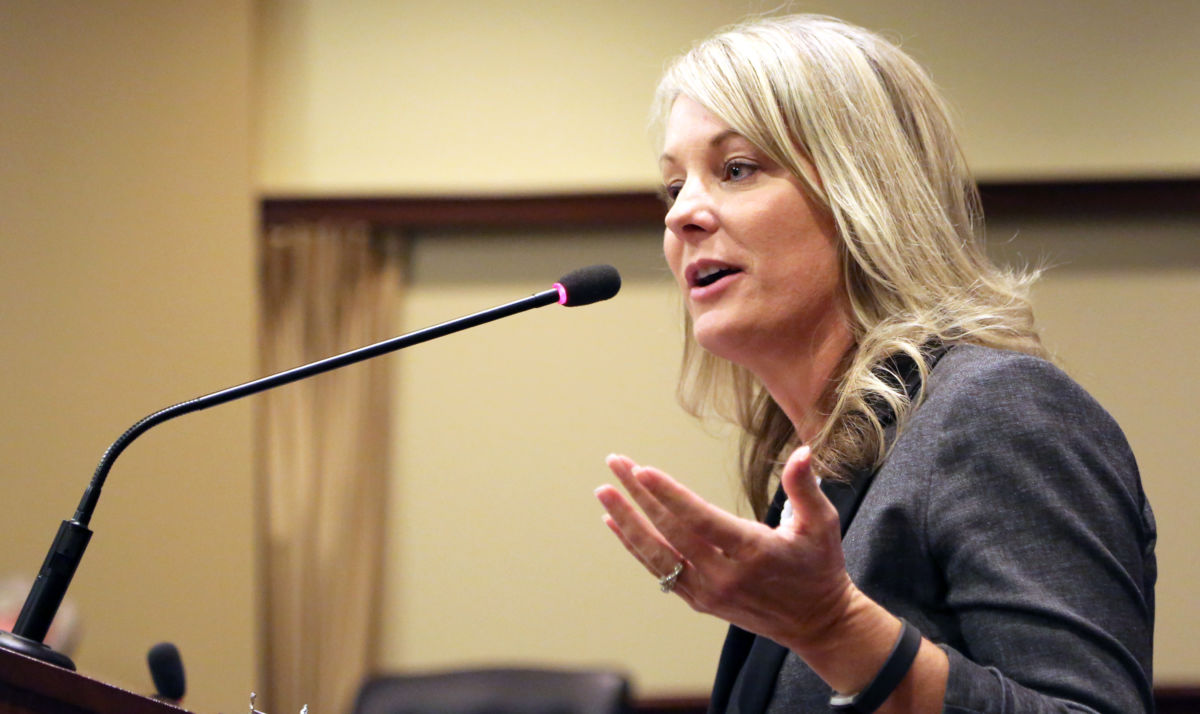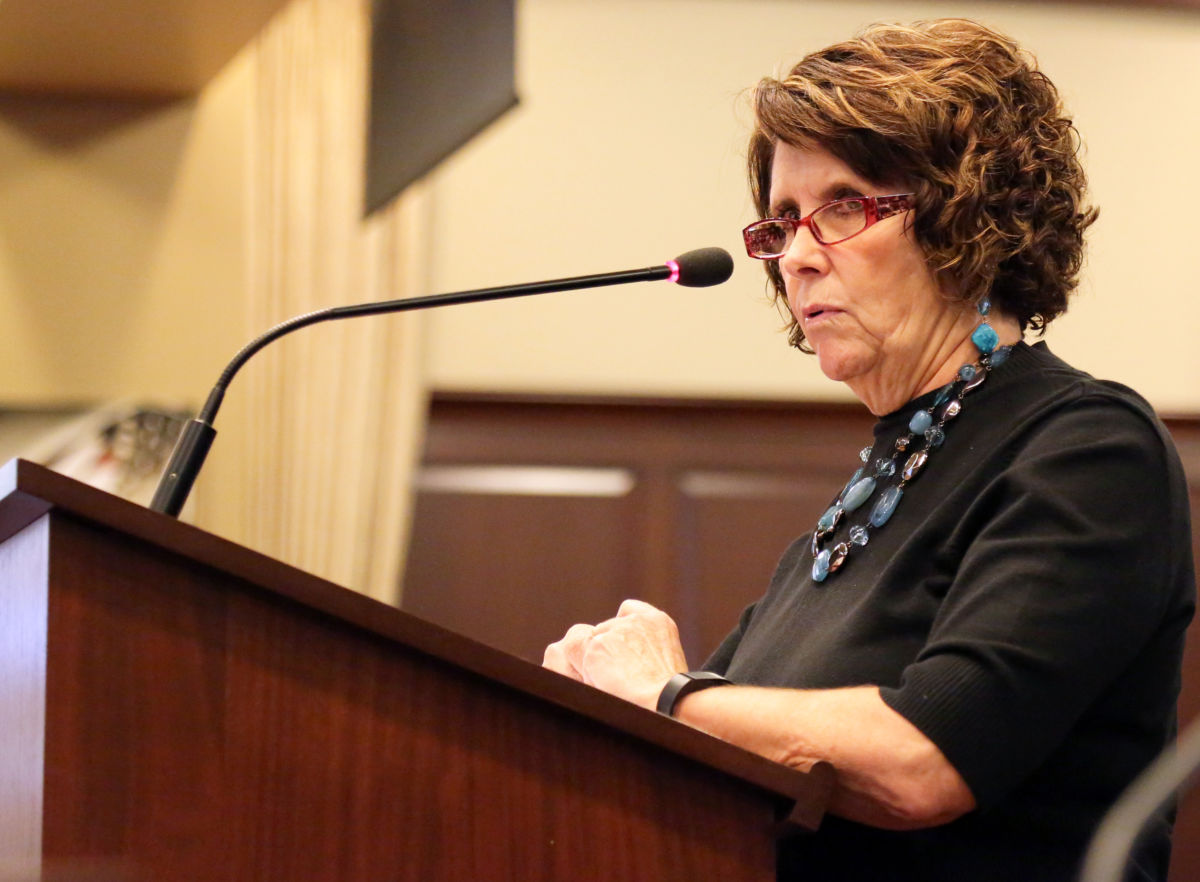On Wednesday, Sen. Dean Mortimer didn’t debate against the $1.7 billion K-12 budget.
Instead, the Senate Education Committee chairman debated in favor of more debate, at some point in the future. He told his colleagues that the state needs to get serious about helping school districts absorb rising insurance costs — and the 2017-18 budgets fall short.
Still, Mortimer voted for all seven K-12 bills. And all seven bills passed the Senate, 33-0.
Wednesday’s action encapsulates the 2017 legislative session, as it pertains to K-12.
The Legislature stayed the course on Idaho’s education reboot, passing budgets that support the recommendations from Gov. Butch Otter’s education task force. The five-year plan for education, so often touted by Otter, remains on schedule.
Look more closely, and this Legislature leaves a long list of K-12 topics unresolved — for 2018, an election year.
Let’s look at the issues in limbo.
Science standards
Idaho’s new science standards were supposed to be a one-shot deal anyway: temporary rules for 2017, subject to full legislative review in 2018.

But the House Education Committee strongly signaled intent — by deleting references to climate change, and embracing Rep. Scott Syme’s suggestion that schools should address “both sides” of the debate. Senate Education went along, although committee members said they want to make sure climate change is incorporated into the permanent standards.
That means a team of science teachers will be back on the job this summer, for the third consecutive year, working on wording. Academic standards set a baseline for classroom instruction, but they must also pass political muster. “We don’t want to water down science, but we’ll take their suggestions in turn,” Boise School District curriculum supervisor Chris Taylor said after Senate Education’s Feb. 27 vote.
Insurance costs
School districts and charter schools spend $160 million a year on employee benefits — even after cutting back family benefits and increasing out-of-pocket costs for teachers and employees.

“That’s not the way to attract and retain teachers,” Mortimer said Wednesday. “We have a real problem in our K-12 system in attracting and retaining teachers, and this is part of that.”
Mortimer wanted to establish a $20.3 million line item to offset some insurance costs. Instead, the K-12 budgets include a $10 million boost in school “discretionary funds,” designed to help cover increases in premiums.
At the start of the session, Otter recommended a health care line item. Now the budgets — without a line item — head to the governor’s desk. Otter assiduously avoids tipping his hand about what he might do with bills, and a veto is within his power. Barring such late-session fireworks, expect the insurance cost debate to resume in 2018.
Rural schools
For the second straight year, state superintendent Sherri Ybarra convinced the House to pass a bill for a rural schools network pilot. For the second straight year, the bill died without a hearing in Mortimer’s committee.

An ad hoc group will spend the off-season looking at rural education topics.
Ybarra remains steadfast behind the pilot, and says it will help overwhelmed rural administrators stretch resources. “I will continue to push for support of the over 70 percent of our districts which are rural,” she said this week.
But launching a network — even a pilot, at a relatively modest cost of $300,000 — has proven difficult. In 2018, Ybarra would have to make her case in an election year, when she might face opposition in a May Republican primary.
School choice
Legislators have sent Otter a bill tweaking charter school law. But larger and more controversial school choice legislation made little headway.
A member of House GOP leadership, Majority Caucus Chairman John Vander Woude, proposed a tax credit bill designed to fund private school scholarships for at-risk students. But the bill never got out of House committee.
The inaction on school choice funding was not unexpected. Before the session, House Education Committee Chairwoman Julie VanOrden suggested putting the topic on hold until 2018, to allow the funding formula committee time to finish its work.
The extra year also will give lawmakers time to find out what President Trump has in mind. He has floated the idea of a $20 billion block grant program for school choice, but the idea hasn’t taken shape.
School funding formula
No one said it would be easy to rewrite Idaho’s school funding formula.
Certainly not the group of lawmakers that started studying the formula nearly a year ago.
They never planned to bring recommendations to the 2017 Legislature — and they were true to their word.
But the sheer fact that a funding formula review is under way had a palpable influence on the 2017 session. Lawmakers used the review as a reason to hold off on an insurance line item, school choice and even the Ybarra rural initiative.
Now comes year two, and the funding formula committee’s hard work. They could show up in 2018 with recommended changes, launching the first rewrite of the funding formula in nearly a quarter century.
Pre-K
Give Idaho’s tireless pre-K advocates points for preparation. They brought in teachers, superintendents and business leaders to argue that Idaho should join the 44 other states that fund pre-K. Lt. Gov. Brad Little was one of their speakers this time.
And the pre-K group got an audience in the education committees, but that in itself isn’t saying much. After all, Senate Education scheduled 58 presentations this session, inviting in everyone from Ybarra’s staffers to university presidents to for-profit education vendors.
Presentations happen. A pre-K bill did not. No legislation surfaced, and neither Otter nor Ybarra included pre-K in their budget proposals. And with a closed GOP primary looming in May 2018, pre-K could be hard-pressed to get beyond presentation mode.
School-based Medicaid
It sounds simple enough: Schools can use federal Medicaid dollars to cover the costs of mandated therapy, counseling and other services for special-needs students. But for several years, education groups and the Department of Health and Welfare have been at odds over the implementation.
Competing proposals went nowhere at the Legislature. Last week, Otter issued an executive order creating a committee to sort out the issue.

“We were happy with the outcome,” said Idaho School Boards Association executive director Karen Echeverria, who spent much of the session working on Medicaid legislation.
The committee’s first order of business could be a sticky one: Should Health and Welfare continue to levy fines against schools for Medicaid paperwork errors?
Pay for master teachers
Without any floor debate, the House and the Senate put another $62 million into teacher pay raises, to cover the third year of the five-year, $250 million career ladder plan.
Under the surface, a debate is starting to loom. It centers on another piece of the teacher pay puzzle: premiums for top-performing “master teachers.”

The premiums could come to $4,000 per year for three years. The catch is, no one knows how many veteran teachers will apply for or qualify for the money. If 10 percent of eligible teachers receive premiums, the cost would come to $4.7 million per year. If 100 percent qualify, the cost hits $47 million.
The Legislature took no action on this issue in 2017 — but lawmakers such as Sen. Steven Thayn argue that it’s time to get a handle on the potential costs, sooner rather than later.
The premiums don’t kick in until 2019, so expect more urgent discussion next year. And expect some lawmakers and education leaders to point out that the premiums are a compromise of sorts. Back in 2013, Otter’s task force recommended a top teacher salary of $60,000. Instead of going that route, lawmakers opted for the master teacher premium instead.
